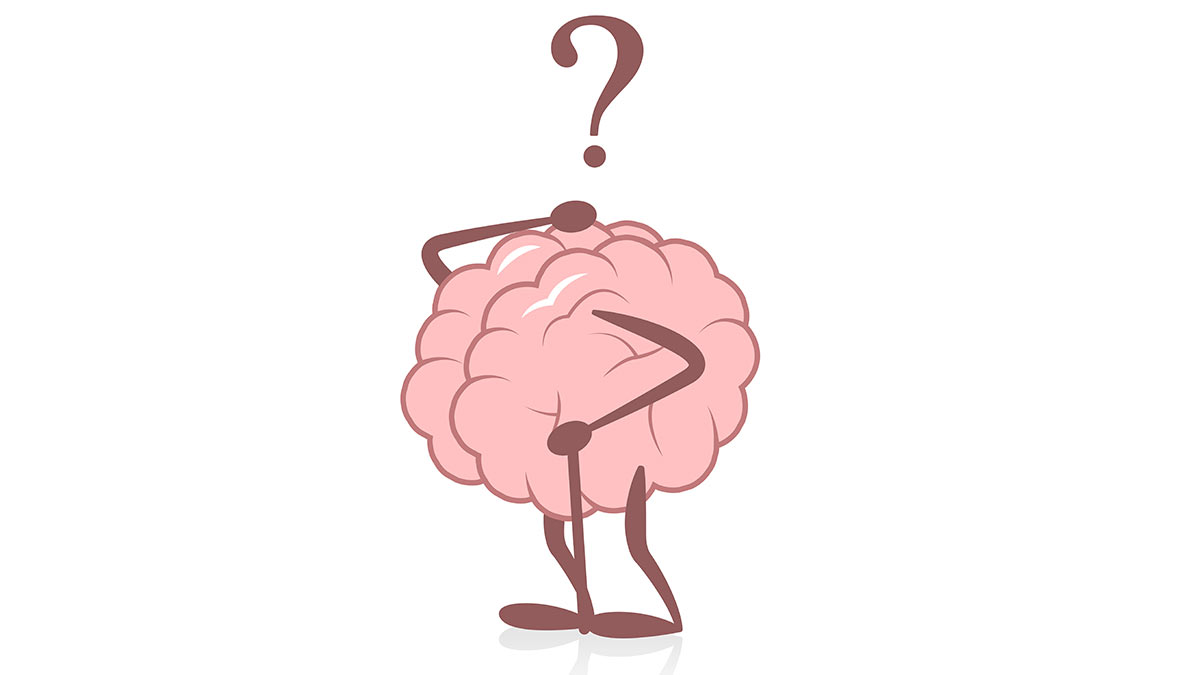Alzheimer’s Disease (AD) is a widespread condition impacting millions of people worldwide. As outlined in NursingCE.com’s CE course entitled Alzheimer’s Disease: Diagnosis, Treatment, and Research, approximately 50 million people are currently living with dementia around the globe, and that number is expected to increase to 152 million by the year 2050. Annual healthcare costs for AD in the U.S. alone may currently be as high as $259 billion.
With a rapidly aging global population, it is imperative for nurses on every continent to understand their role in the identification of patients suffering symptoms of dementia, as well as the diagnosis criteria, research, treatment, and psychosocial interventions for this scourge impacting so many elderly patients and their loved ones.
A Profile of Alzheimer’s Disease
The World Health Organization (WHO) states that dementia is a disease affecting memory, other cognitive abilities, and behavior that interferes with daily functioning and activities of daily living (ADLs). As the 7th leading cause of mortality worldwide, this insidious disease robs individuals of their independence and sense of personal agency.
Accounting for approximately 60-70% of all dementia cases, risk factors For Alzheimer’s include being over 65 (although roughly 9% of patients with AD are under 65), physical inactivity, obesity, unhealthy diet, tobacco use, alcohol abuse, diabetes, hypertension during midlife, depression, low educational attainment, social isolation, and cognitive inactivity. Other factors may include elevated cholesterol levels, brain injury, learning disabilities, and physical frailty. Some evidence also points to the fact that being married is potentially protective against Alzheimer’s.
The Alzheimer’s Association reports that deaths from AD have increased 123% since the year 2000, and now 1 in 3 seniors actually die from causes related to AD or other forms of dementia. In the United States, an estimated 5.6 million people are currently living with Alzheimer’s Disease, and this number is largely expected to increase exponentially in the decades to come.
The number of patients in the United States with AD is currently estimated at 5.6 million and expected to grow to 13.8 million by 2050. For this and other reasons outlined above, it is imperative for nurses to have a comprehensive grasp of this disease in order to have the capacity to appropriately intervene when the presence of Alzheimer’s or other dementias is apparent.
The Complex Diagnostic Criteria of AD
When it comes to the care of patients living with Alzheimer’s Disease, nurses can be involved at a variety of levels. From detection and diagnosis to treatment and efforts related to rehabilitation and living the best possible life with such an all-pervasive condition, nurses have a great deal to contribute.
In terms of the diagnosis of Alzheimer’s, registered nurses are obviously not diagnosticians with autonomous license to offer such a diagnose to patients and their loved ones. However, a nurse’s astute clinical observations based on his or her knowledge of the disease may assist with early detection, treatment, and targeted interventions for the support of all those affected.
While the use of neuroimaging and the detection of some biomarkers may result in a positive diagnosis, clinical signs are often what leads to an official diagnosis. The stages of Alzheimer’s are delineated thus:
- Preclinical stage: no evident symptoms, with brain changes largely undetectable.
- Second stage: mild cognitive impairment (MCI) which includes symptoms like memory loss or cognitive issues that are more grave than expected given the individual’s age and education level, but not necessarily altering their independent function at home or in the wider society. In this stage, incremental changes in cognition from a previously intact state may raise concern among healthcare professionals, loved ones, or caregivers.
- Third stage: known as Alzheimer’s dementia. This stage is characterized by memory loss, difficulty finding words and speaking coherently, and/or problems related to proprioception and independence in ambulation and spacial negotiation.
Diagnostic criteria currently stipulate that dementia due to Alzheimer’s Disease must involve a minimum of two of the following domains:
- Ability to acquire/retain new information
- Reasoning/judgement/handling of complex tasks
- Visuospatial abilities, language functions, or changes in personality/behavior
Other terms to bear in mind include:
Possible Alzheimer’s Disease: when criteria for AD are met but the disease is following an atypical course or there is evidence of a mixed presentation.
Probable Alzheimer’s Disease: when all of the diagnostic criteria for AD are met, with gradual onset over months or years.
Of note, the definite proof of the presence of AD can currently only occur through a positive autopsy.
In 2013, the Alzheimer’s Association published recommendations for primary care providers (PCPs) to better detect cognitive decline as a regular component of the Medicare annual wellness visit (AWV), one of the new benefits included in the 2010 Affordable Care Act (ACA). Since nurses work closely with both physicians and advanced practice nurses who treat such populations, they can assist the PCP in the gathering of diagnostic findings with an eye towards a definitive identification of the presence of Alzheimer’s Disease.
Data that a nurse may be privy to in the course of a patient intake or conversations with loved ones or caregivers may include, but not be limited to:
- The detection of any level of cognitive impairment by medical staff, caregivers, or loved ones
- Direct observation of the patient
- The reporting of an increased frequency and/or worsening of confusion or memory loss
- The need for increased assistance with activities of daily living (ADLs), such as eating, getting dressed, grooming, bathing, walking, or using the toilet
- The need for increased assistance with independent activities of daily living (IADLs), such as laundry, housekeeping, banking, shopping, using the telephone, food preparation, transportation, or correctly taking medications
Based on the structure of the clinical practice in which a nurse functions and the breadth of autonomy sanctioned by the supervising provider, he or she may assist with various screenings, including the General Practitioner Assessment of Cognition (GPCOG), the Memory Impairment Screen (MIS), the Mini-Cog, or the Mini-Mental State Exam (MMSE).
Other diagnostic screening tools exist, including those put forth by the Gerontological Society of America; criteria derived from the results of the Cardiovascular Health Study; the Framingham Heart Study; the Sacramento Area Latino Study on Aging; and the Health and Retirement Study.
Nursing Interventions Related to AD
For nurses who interface with an elderly population and their caregivers and loved ones, compassion and empathy are central to offering personalized support, education, and advice for those struggling with the disease and its impact. The emotionally and relationally intelligent nurse is worth his or her weight in gold in such circumstances, especially since patients’ loved ones will need multifaceted support in order to move forward with Alzheimer’s care in the most positive manner possible.
Nurses’ skills in relation to the psychosocial aspects of Alzheimer’s Disease include:
- Psychosocial support of the patient and his or her loved ones
- Timely referrals to home health and hospice
- Referrals to respite care, nursing homes, and dedicated memory units
- Referrals to counseling, psychotherapy, and support groups for both patients and their families
- The decision-making process related to what forms of care will be most efficacious for each individual situation and stages of illness
- The understanding and completion of appropriate advanced directives
Care decisions should be guided by carefully considering the overall goals of care, whether for interventions geared towards prolonging life or for palliation.
Nurses are skilled in the management of symptoms, and caregivers and family members may lean on the nurse for specific advice. The risks of infection (e.g.: urinary tract infections and URIs) and injury must be addressed, as well as hygiene and sanitation for the patient with AD. Nutritional interventions, the teaching of safe transfer and ambulation techniques, the procurement of durable medical equipment, and other concerns can also be adroitly addressed by the proactive nursing professional.
Being skilled in the evaluation and interpretation of available research, the nurse can also serve as a guide for caregivers and loved ones as they attempt to navigate the maze of new data being reported in the academic literature and the mainstream media, as well as the plethora of both high- and low-quality information available on the Internet. The nurse can also interpret and explain the tests, procedures, and referrals ordered by a physician or nurse practitioner.
Overall, nurses have a large role to play in all aspects of Alzheimer’s care, and their importance in the management of such a widespread global disease cannot be overstated. In the decades to come, the nursing profession will certainly only increase its understanding, involvement, and acumen in relation to AD as the next generations of nurses step up to the plate in caring for and managing the burgeoning population of individuals and families dealing with and attempting to mitigate the multilayered impact of Alzheimer’s Disease on communities, societies, economies, and healthcare infrastructures worldwide.



